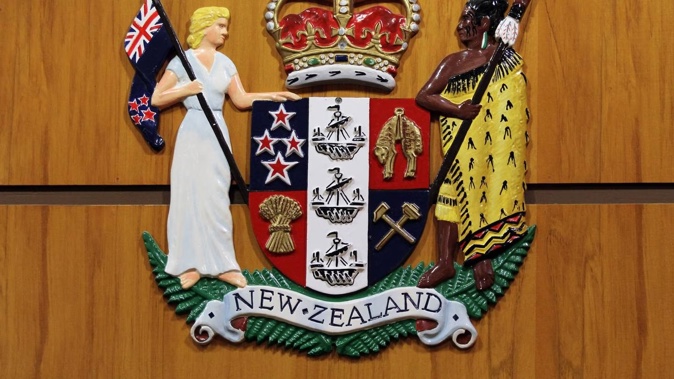
The sentencing of a former Mongrel Mob man who stabbed a Killer Beez member in the head after a fight over $50 has revealed conditions akin to a powder keg inside a Mangere boarding house meant to help people on bail.
Nui Rangirangi, 35, was sentenced at the Auckland High Court this morning to more than four years in prison for repeatedly stabbing the Killer Bee five times, including twice in the head, after losing a fist fight over $50. He says he has now distanced himself from the Mongrel Mob and was supported by his family in court.
Justice Anne Hinton said the victim was lucky not to suffer permanent damage from the attack.
During the trial, it was put to the victim that he was the one with the knife, not Rangirangi, to which the victim said that if he had had a knife, the other party would be dead.
The Judge gave discounts for abuse and deprivation in Rangirangi’s childhood. She acknowledged the victim forgave Rangirangi and did not want to proceed with charges.
But Justice Hinton expressed concern over conditions in the Grace Foundation boarding house in 2020 when the attack took place. It appeared drug and alcohol use was commonplace and rival gang members were housed together with “very loose” supervision, she said.
“This does not strike me as a sound situation to place men together, particularly from different gangs,” Justice Hinton said.
The Grace Foundation offers accommodation and rehabilitation programmes, targeted at people on bail or serving community-based sentences.
Many clients would be remanded in custody while awaiting trial or sentence were it not for the foundation’s offers of accommodation and support, which can help alleged offenders obtain electronically monitored bail, particularly those with criminal histories whom the courts would be reluctant to release on unsupervised ordinary bail.
Rangirangi was on electronically monitored bail at the time of the attack and has convictions for violence including injuring with intent and aggravated robbery causing grievous bodily harm.
Justice Hinton described the environment in the Mangere boarding house on July 23, 2020, as a “cauldron”, with simmering gang tensions exacerbated by drug and alcohol use.
The victim had drunk three boxes of RTDs before the attack, the equivalent of 36 drinks.
/cloudfront-ap-southeast-2.images.arcpublishing.com/nzme/5NFBRSB5ONCUJJPDEXVTWYOAQQ.jpg)
The Killer Beez member who was stabbed later said he did not want to press charges. Photo / Brett Phibbs
Witnesses said all the men present had been using methamphetamine.
The victim and Rangirangi became embroiled in a scrap outside the boarding house over $50, which the victim won.
Rangirangi ended up on the ground, before heading inside to seek his revenge.
He came into the lounge wielding a 30cm knife and attacked the victim, stabbing him five times, including twice in the head.
The victim, suffering a fractured skull, a broken rib and a collapsed lung, drove himself to hospital, where medical staff called police.
Rangirangi was arrested the following morning.
He pleaded not guilty and was convicted after a judge-alone trial.
It was only at today’s sentencing that Rangirangi admitted his involvement, expressing his remorse and apologising in a letter presented to the court.
His lawyer Peter Kaye said Rangirangi was taking responsibility after spending about two years in prison, including periods in solitary confinement.
He sought a discount of 40-50 per cent for factors outlined in a cultural report prepared by prominent sociologist and gang expert Jarrod Gilbert.
The report said he was subject to physical and psychological abuse by his father. He would hit Rangirangi with lumps of wood and make him stand outside naked in response to perceived transgressions.
“It is hard for a child to learn how to do the right thing when they are being constantly punished,” Justice Hinton said.
He grew up in state houses with little to eat and began stealing from shops aged about 7.
His father was jailed when Rangirangi was in his teens, and committed suicide a few years later, the court heard.
Justice Hinton allowed a 20 per cent discount for cultural factors from a starting point of six years in prison, and a further 13 per cent discount for the remorse and apology.
On the charge of wounding with intent to cause grievous bodily harm, he was sentenced to four years and three months in prison.
Take your Radio, Podcasts and Music with you









